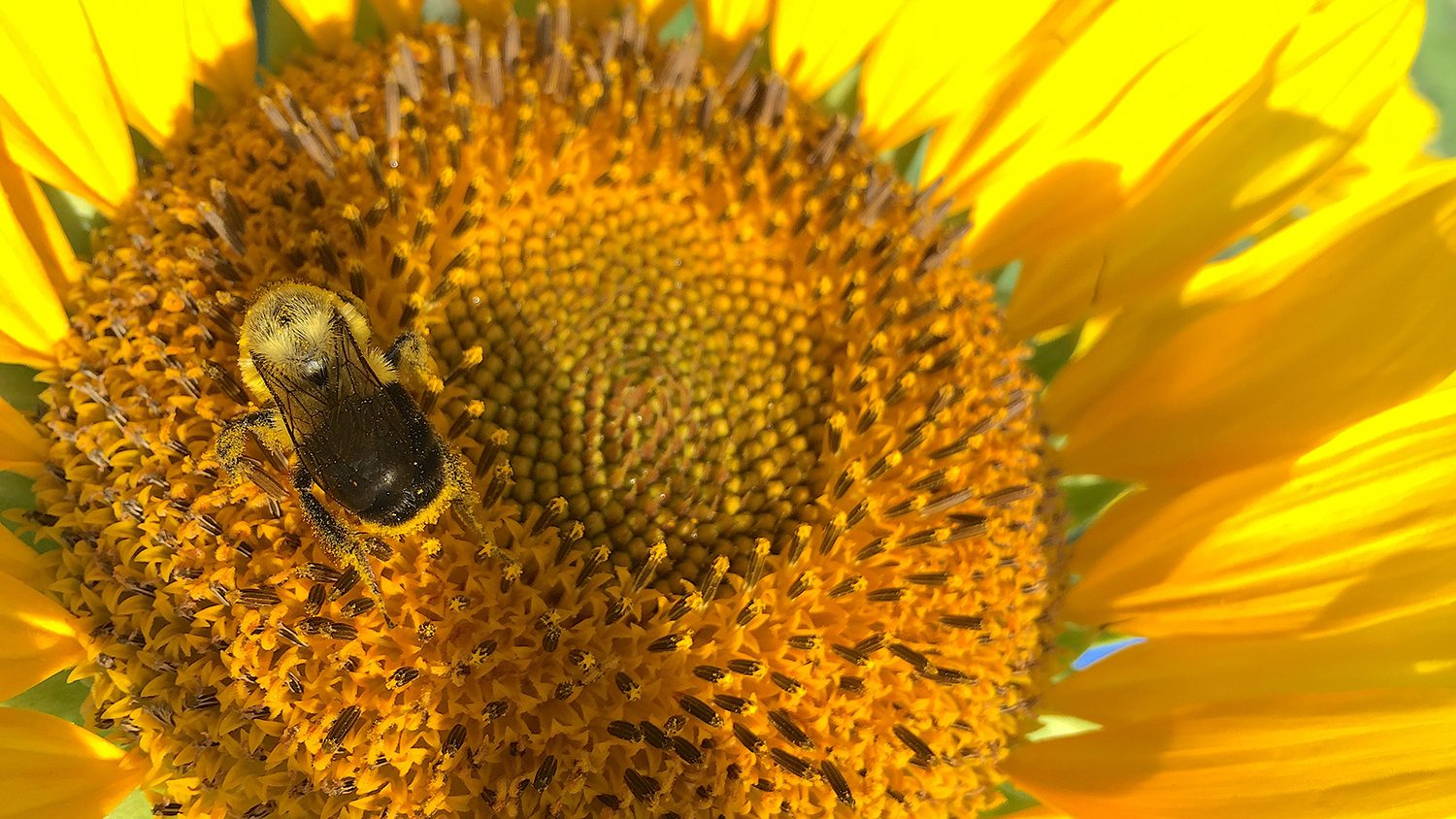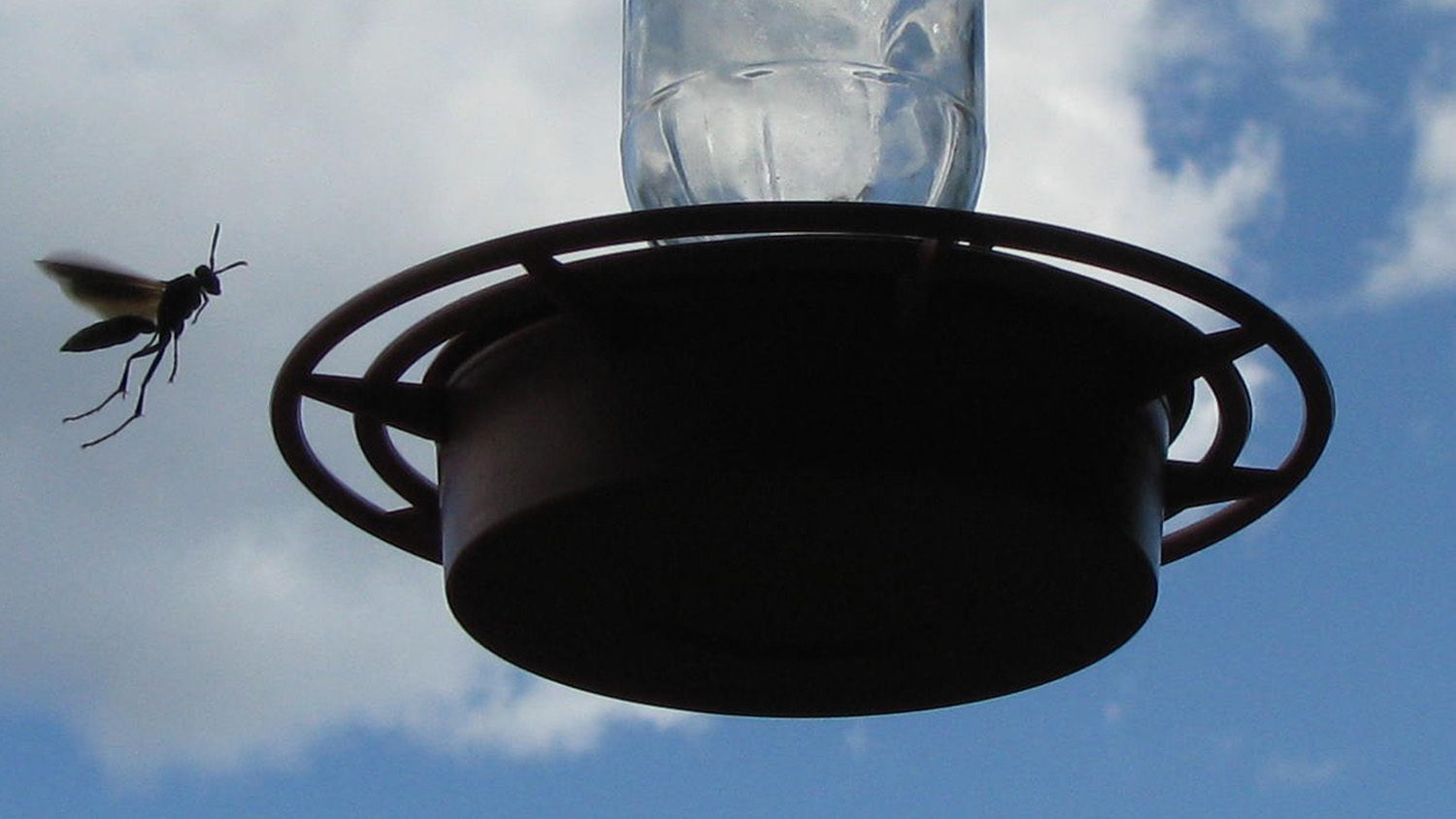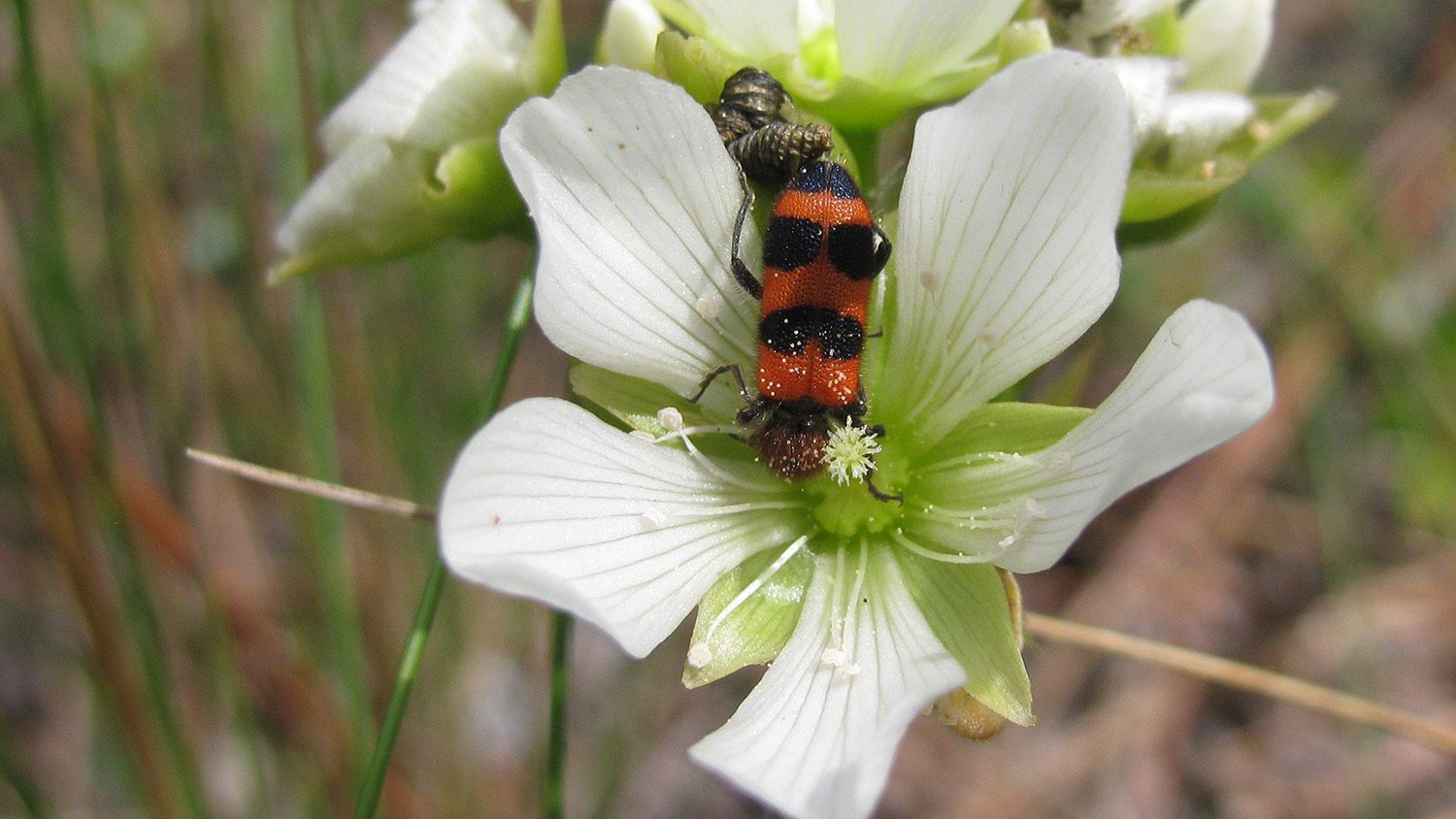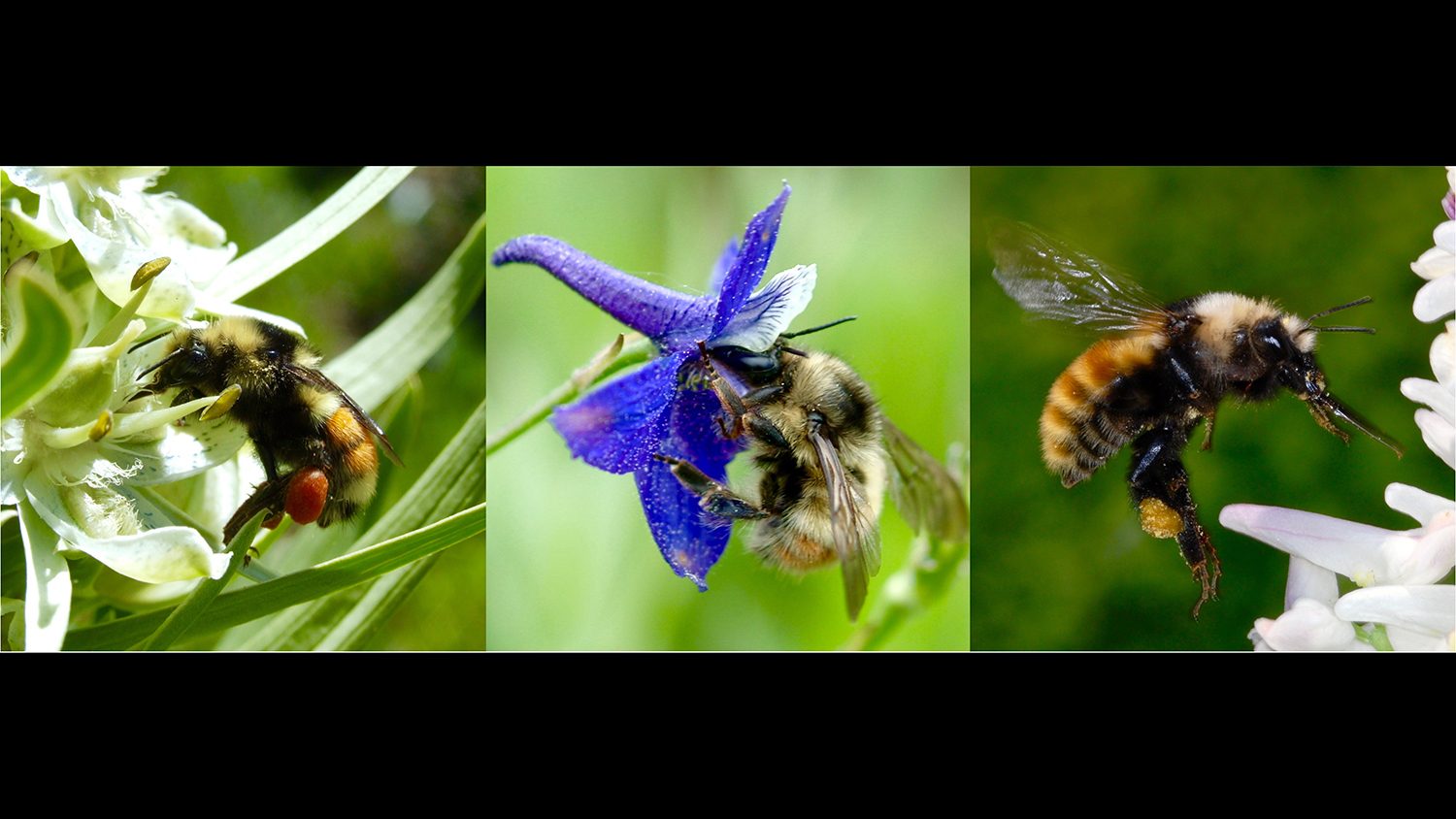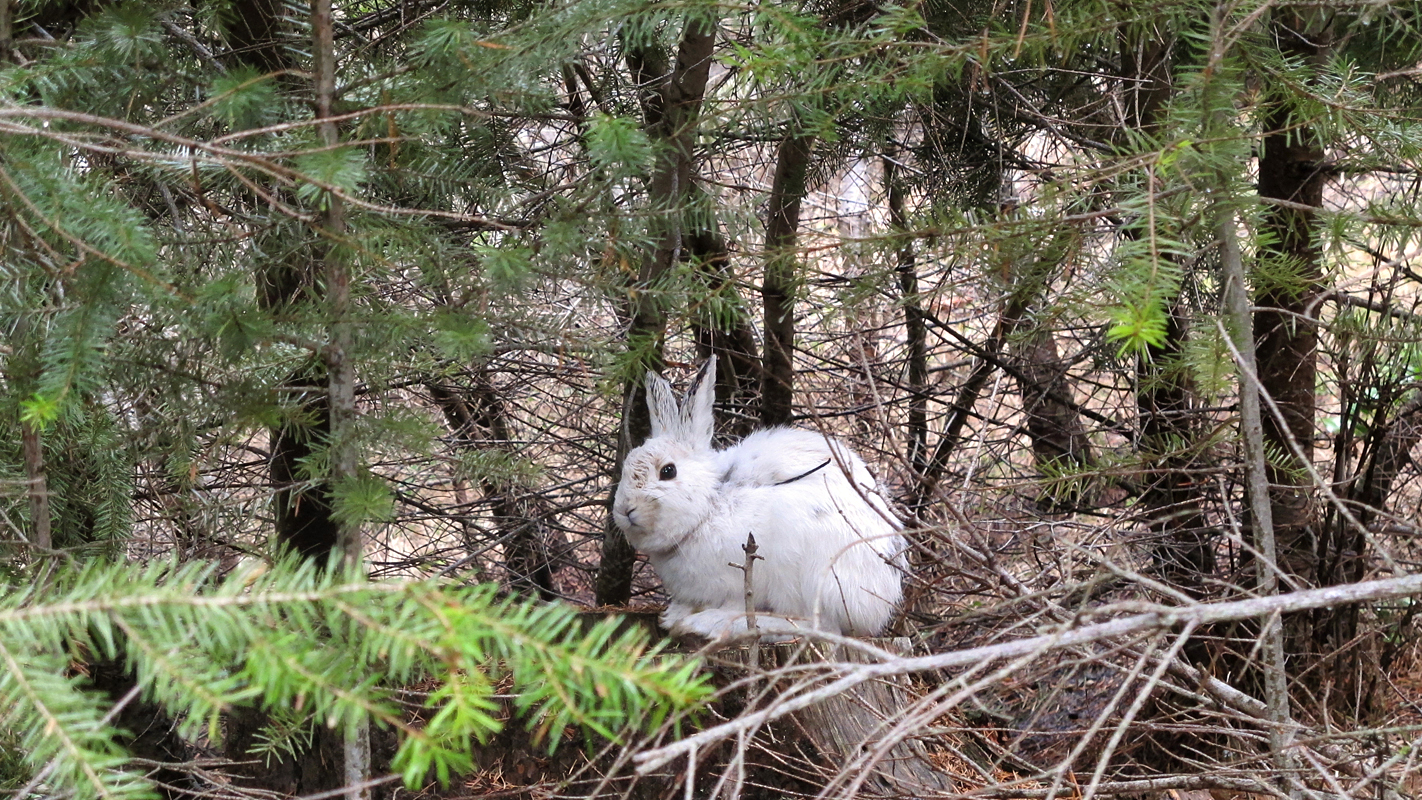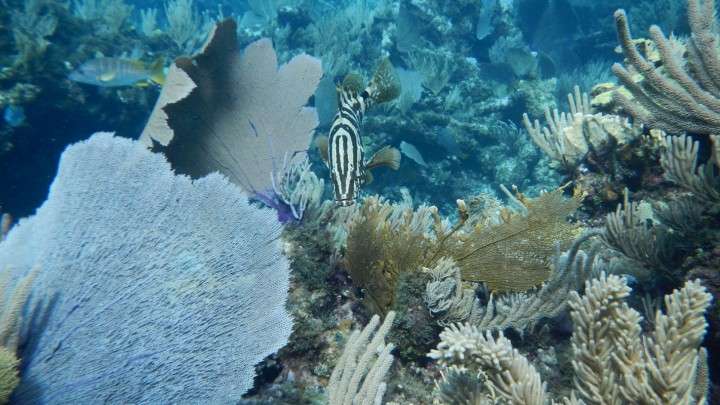Global Environmental Change and Human Well-Being
Sunflower Pollen Has Medicinal, Protective Effects on Bees
If you’re looking to keep bees healthy from harmful pathogens, it might be time to call in the sunflowers.
Could Insects Help Us Find New Yeasts for Big Business?
Yeasts are tiny fungi – but they play key roles in producing everything from beer and cheese to industrial chemicals and biofuels.
Venus Flytraps Don’t Eat The Insects That Pollinate Them
Researchers discover which insects pollinate Venus flytraps – and learn that flytraps don’t dine on them.
Fish type, body size can help predict nutrient recycling rates
NC State University associate professor Craig Layman and colleagues show that ecologists can better predict the rates of how chemical nutrients are transferred by fish if they know the various fish species living in an ecosystem, along with the body size of the fish.
Climate’s Effects on Flowers Critical for Bumble Bees
New NC State research shows that earlier and longer flowering seasons have detrimental effects on bumble bees.
Evolutionary Clock Ticks for Snowshoe Hares Facing Climate Change
Snowshoe hares that camouflage themselves by changing their coats from brown in summer to white in winter face serious threats from climate change, and it’s uncertain whether hare populations will be able to adapt in time, according to a North Carolina State University study.
Fish Type, Body Size Can Help Predict Nutrient Recycling Rates
Research by cluster hire Craig Layman shows the nutrients excreted by fish in their “pee” may be critical to the health of coastal ecosystems.
